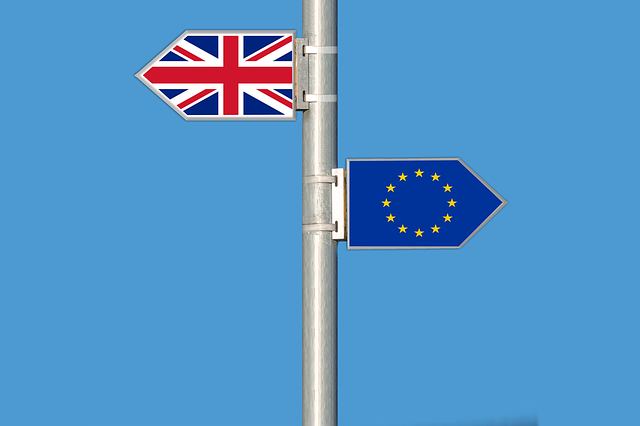The UK reached an eleventh hour trade deal with the EU, on Christmas Eve, 2020. This is the EU-UK Trade and Cooperation Agreement.
In effect, it is Brexit with a trade deal, but there will be changes from January 1 because the UK’s relationship with the EU is now different.
How Important is Trade with the EU?
According to Parliament’s Commons Library, in 2019 UK exports to Europe were £294 billion, and imports from the EU were £374 billion.
As a whole, the EU is the UK’s largest trading partner, accounting for 43 per cent of UK exports and 52 per cent of imports.
The UK currently runs a trade deficit with the EU, and this was £79 billion overall in 2019.
In contrast, the UK has had a trade surplus with countries outside the EU, running to £49 billion.
Ultimately, how Brexit will affect trade with the EU will only become clear over time, but changes to regulations are going to have an immediate impact.
Already, there have been news stories about disruption for fishing firms in the UK.
What Changes are There to Trade between the UK and EU?
As part of the original withdrawal agreement, the UK withdrew from the customs union, the single market, and all EU international agreements.
During the Brexit transition period, the UK continued to participate in the single market, but that period ended on December 31 2020.
From January 1 2021, there are changes to customs regulations involving imports and exports, which will involve more paperwork.
There are changes to whether VAT is chargeable on imports and exports.
Brexit and the trade deal is also having an impact on incoterms.
What are Incoterms?
International commercial terms, or incoterms, relate to international commercial law. The International Chamber of Commerce (ICC) publishes them.
They are useful in allocating risks between buyers and sellers, relating to the delivery of goods across international borders.
While the UK was still a member of the EU, incoterm provisions relating to customs clearances and border check had little relevance.
From January 1 2021, however, trading parties will need to pay much closer attention to the incoterms relevant to them.
Brexit can have both commercial and practical implications for incoterms.
At either end of the buyer and seller spectrum, there is little room for ambiguity, but where incoterms are closer, there is the potential for issues to arise.
For example, under EX Works (EXW) incoterms, the seller discharges their obligations when they place goods at the buyer’s disposal, at the seller’s premises or another named place.
Under these terms, the buyer assumes responsibility for all costs when importing into their own jurisdiction.
In contrast, under Delivered Duty Paid (DPP) incoterms, the seller takes on these costs.
But more recent incoterms include Delivered at Terminal (DAT) and Delivered at Place (DAP). These require the parties to specify the place of delivery.
Delivery under DAT occurs when goods are unloaded from the vehicle and placed at the buyer’s disposal.
Under DAP, delivery occurs when the goods are ready for unloading.
Under these incoterms, the allocation of risk depends on precise specifications of delivery places.
A key question in either of these situations is whether delivery occurs before or after formal clearance.
What this potential complexity highlights is the need for post-Brexit traders to be clear about which incoterms apply, and what actions they need to take to ensure complete clarity.
How Are Custom Regulations Different?
Customs regulations for goods entering and leaving the UK are now stricter, because the UK is no longer part of the arrangements whereby there are open borders within the EU.
By Britain coming out of the customs union and VAT area, this impacts on the way UK companies can trade on the continent. It means the introduction of customs administration.
Full customs declarations are normally completed electronically, using the Customs Handling of Import and Export Freight (CHIEF) system.
They apply to goods before they leave the UK for export, or before they leave their country of origin, if they are being imported into the UK.
The submission period for customs declarations varies according to transport modes and locations, but generally it is between 30 minutes and two hours.
Another change is to chargeable VAT. Previously VAT applied to exports within the EU, but not to non-EU countries.
This is different from January 1 2021, because zero-rating VAT now applies to goods exported to EU member states.
How to Prepare for Change
Because the UK and EU have reached a trade deal, tariffs or other restrictive quotas will not apply.
However, new customs and regulatory checks will.
These include local content and rules of origin requirements.
It will not take much to cause delays.
A single operator failing to have the right paperwork could be disruptive to the supply chain, but if errors multiply, then that disruption could get worse.
Trading in a post-Brexit world means registering for an Economic Operators Registration and Identification (EORI) number, and gaining a clear, comprehensive understanding of all the necessary regulations and requirements.
It is important for importers and exporters to be ready for inevitable increases in their administrative burden.
And for crucial financial and regulatory aspects of post-Brexit trade with the EU, it is always sensible to seek expert advice.
For more information on how Brexit may affect UK to EU imports/exports for SME’s and small businesses, please give Venn Accounts a call on 020 8088 2590, email enquiries@vennaccounts.com or fill in our contact form, and we’ll be in touch as soon as possible.






